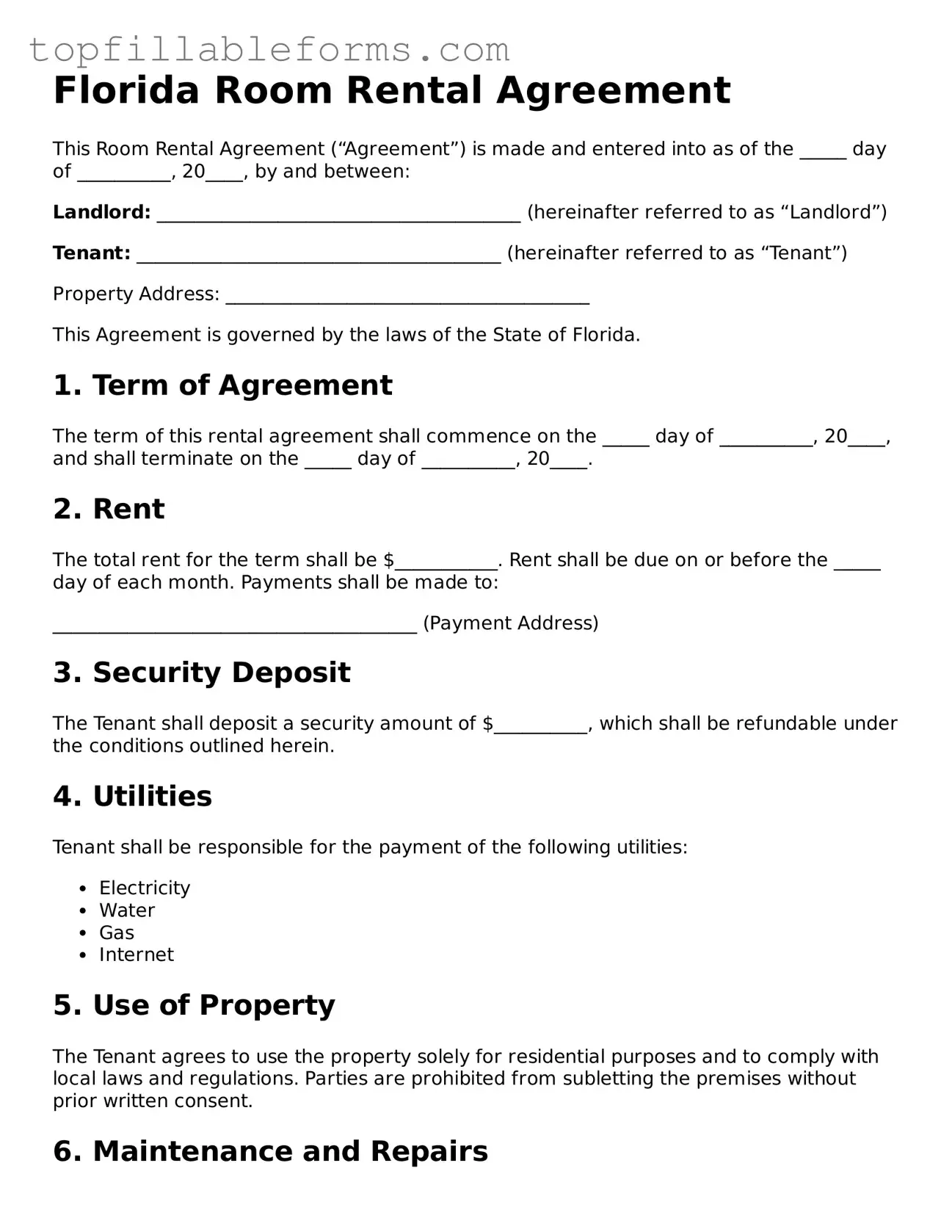Attorney-Verified Room Rental Agreement Template for Florida
The Florida Room Rental Agreement form is a legal document that outlines the terms and conditions between a landlord and a tenant for renting a room in a residential property. This agreement protects the rights of both parties and establishes clear expectations regarding rent, duration of stay, and responsibilities. Understanding this form is essential for anyone involved in room rentals in Florida.
Open Room Rental Agreement Editor Here

Attorney-Verified Room Rental Agreement Template for Florida
Open Room Rental Agreement Editor Here
Finish the form now and be done
Finish your Room Rental Agreement online by editing, saving, and downloading fast.
Open Room Rental Agreement Editor Here
or
▼ PDF File
